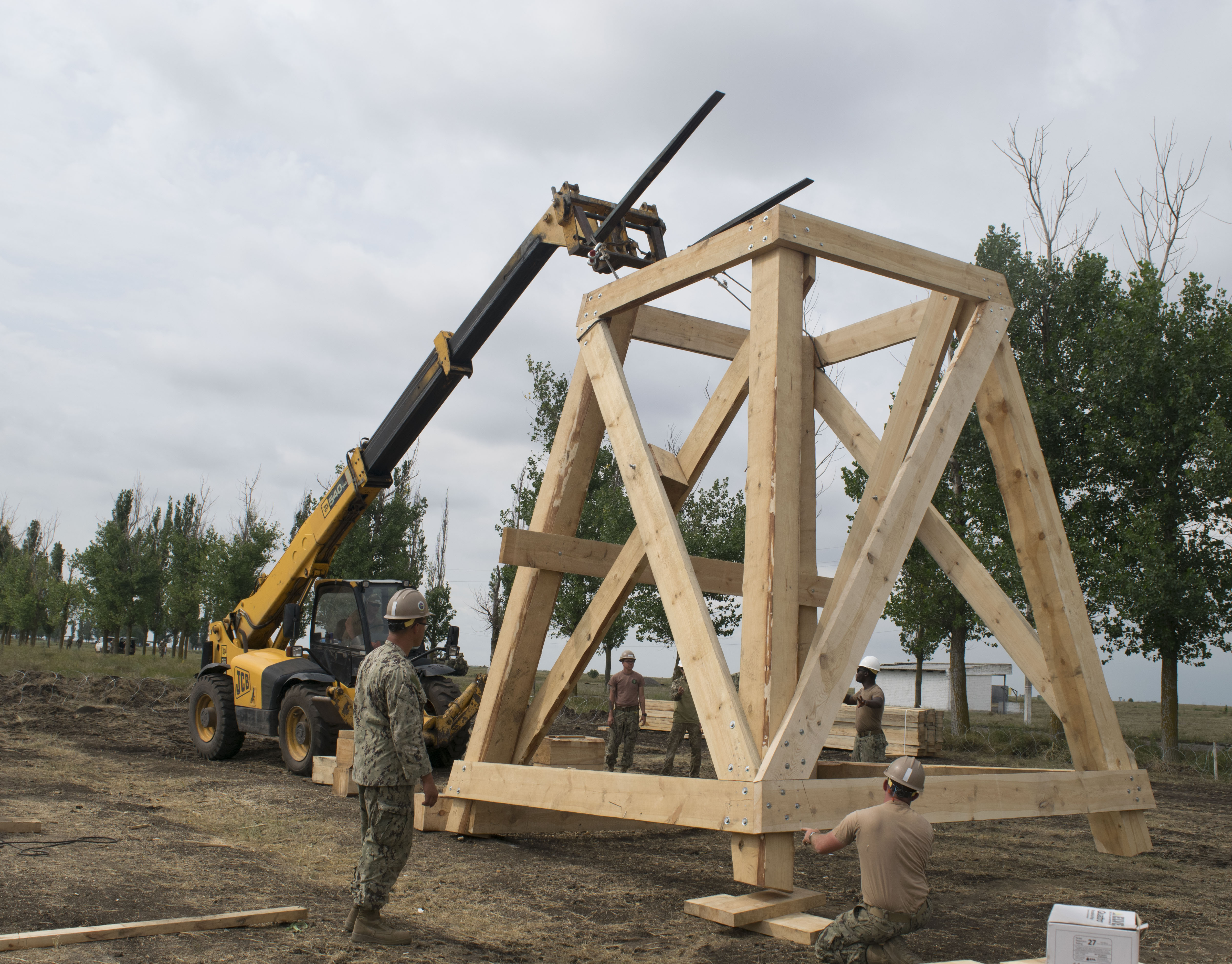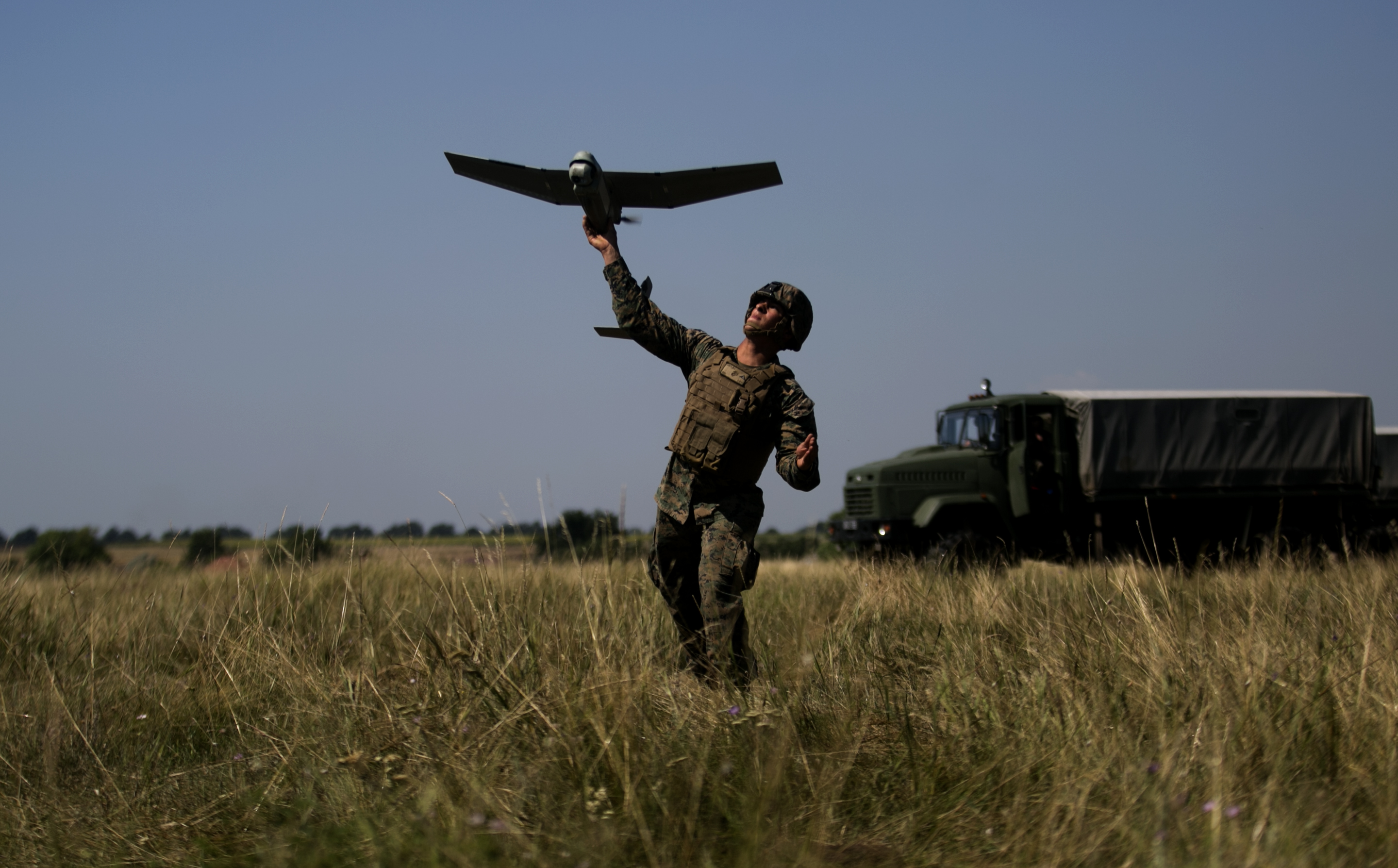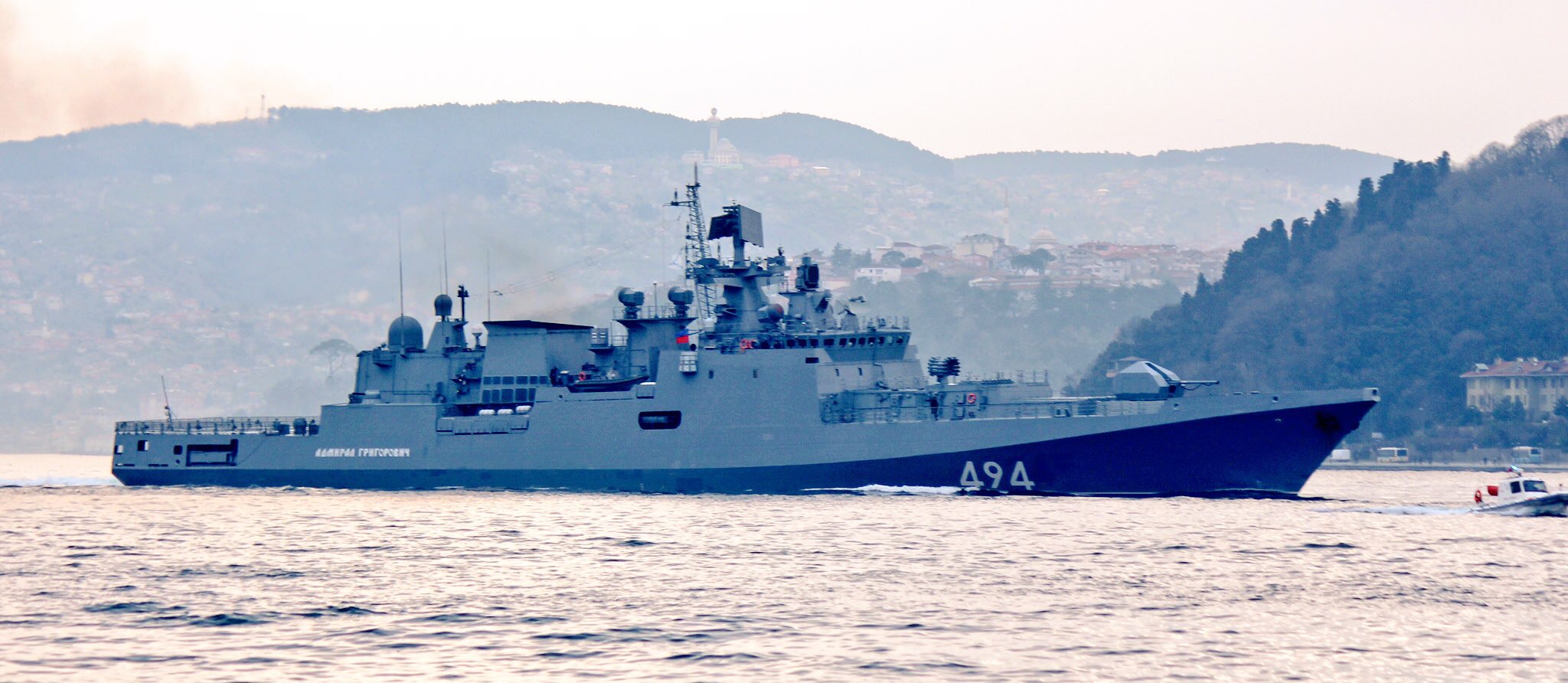
Navy Seabees are building a maritime operations center on Ukraine’s Black Sea coast, for use during annual U.S. and Ukrainian military exercises and to assist allied maritime operations.
Seabees assigned to Naval Mobile Construction Battalion (NMCB) 1 are constructing the $750,000 maritime operations center on Ukraine’s Ochakiv Naval Base, located near Odessa. When complete, the center will serve as major planning and operational hub, conducting command and control of Black Sea-region maritime assets during Sea Breeze, the annual joint U.S. and Ukrainian military exercise. The most recent Sea Breeze ended in July.
“Beginning construction in Ukraine is a significant accomplishment for NMCB 1,” Lt. j.g. Jason McGee, the officer in charge of Detachment Ukraine, said in a written statement.
“Our ability to maximize European reassurance initiatives in Ukraine holds strategic importance, and will ultimately improve host nation defense capacity and infrastructure, strengthen relations, and increase bilateral training capabilities.”
Seabees have been in Ochakiv since April, establishing contracts, obtaining construction permits, and performing other logistical necessities needed for long-term sustainment of the maritime operations center. Once complete, the Navy stated Ukrainian naval forces will operate and maintain the center. Outside of the annual Sea Breeze exercise, the center will assist Ukraine’s ability to coordinate activities with allies operating in the Black Sea.
For Ukraine, such assistance is considered vital for the nation to maintain its sovereignty, according to statements made by Pavlo Klimkin, Ukrainian foreign affairs minister, when he testified on March 7 before the U.S. Senate Appropriations, State, Foreign Operations, and Related Programs Subcommittee.
Currently, no U.S. Navy personnel are permanently stationed in Ochakiv, and the Navy stated there are no plans to permanently station any U.S. forces at Ochakiv in the future. Separate from the operations center project, the U.S. Navy plans to construct a boat maintenance facility at Ochakiv.

But Ukraine is in the midst of bulking up its naval forces since winter 2014, when Russian forces moved into the Crimean Peninsula on the Black Sea. The government can use help, Klimkin said, because Russian now occupies two Ukrainian airports and naval facilities on the Crimean Peninsula.
Moscow’s growing sphere of influence in the Black Sea and nearby Mideast is very concerning to his government in Kiev, Klimkin said.
“Russia has designated the militarization of Crimea as a top priority,” Klimkin said during his testimony. “The aim is to make the peninsular a powerful military base to ensure full control over adjusting regions thus to counterbalance NATO forces in the Black Sea region.”
Russia, Klimkin said, is also taking actions he described as designed to reintroduce nuclear warheads to Soviet-era storage facilities in the region.
“Potential carriers of nuclear weapons, such as warships, short-range missile systems and combat aircraft, have been already deployed in the Crimean Peninsula,” Klimkin said.

Since 2014, Russia has steadily brought more military personnel to Crimea. Today, Klimkin said Russia has more than 29,000 army, navy, and air force personnel based in the region. Before 2014, Klimkin said about 12,500 Russian military personnel were based there, on facilities leased from Ukraine. Klimkin added his government believes Russia could ultimately base 43,000 military personnel in Crimea.
Since January 2014, Klimkin told Senators, Russia has reinforced and modernized its Crimean military land, air, and naval components, including increasing:
- Tanks to 40 from 0
- Armed combat to 583 from 92
- Artillery systems of the caliber more than 100 mm to 162 from 24
- Combat aircraft to 101 from 22
- Combat helicopters to 56 from 37
- Anti-aircraft systems to 16 from 0 to 16
- Combat ships to 30 from 26
- Submarines to 5 from 2
“The only effective response to aggressive actions of Russia should be international solidarity with Ukraine and strengthening political, diplomatic and economic pressure on the aggressor,” Klimkin said.





